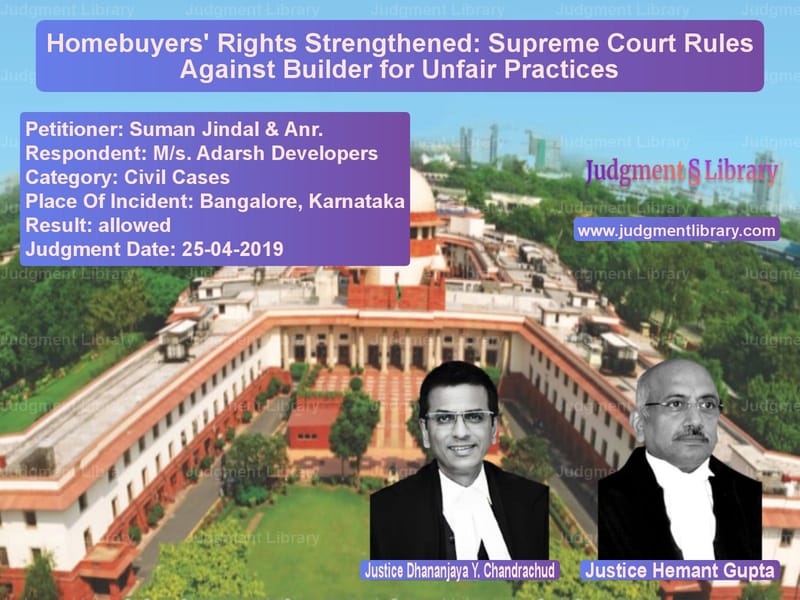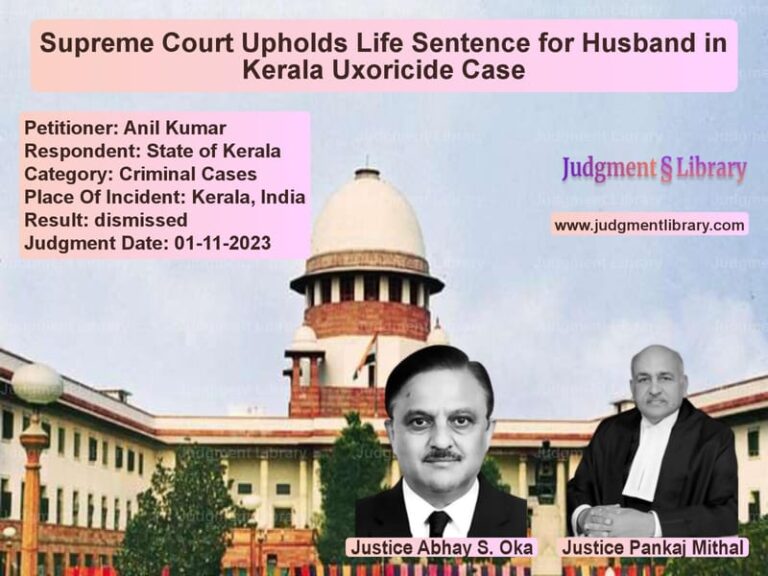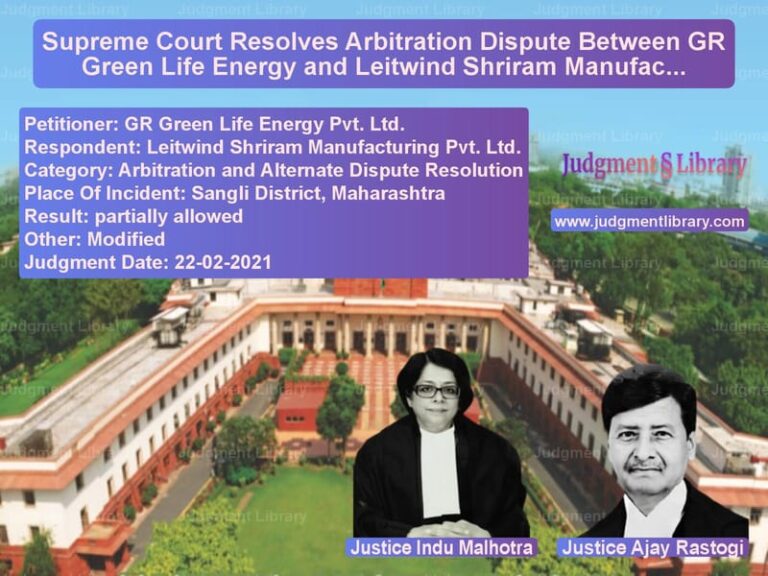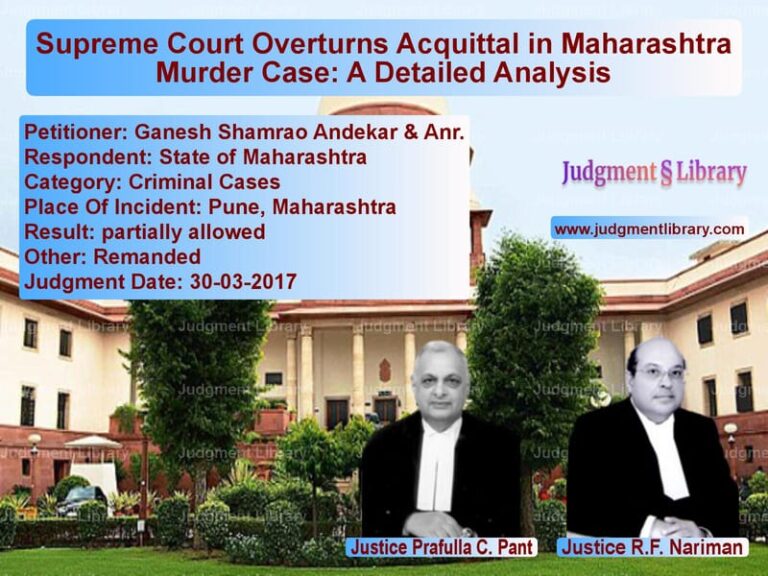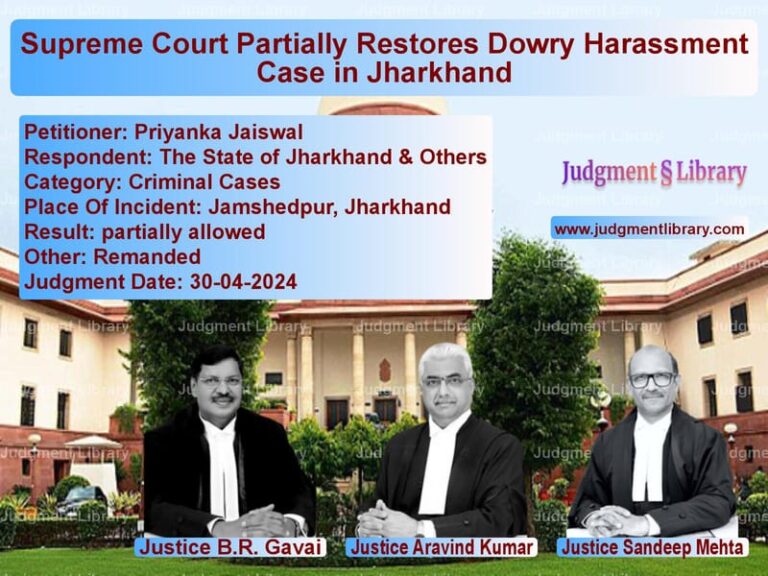Homebuyers’ Rights Strengthened: Supreme Court Rules Against Builder for Unfair Practices
The Supreme Court of India has ruled in favor of homebuyers, emphasizing that real estate developers must adhere to their commitments and not engage in unfair trade practices. In the case of Suman Jindal & Anr. v. M/s. Adarsh Developers, the Court set aside the National Consumer Disputes Redressal Commission (NCDRC) and State Consumer Disputes Redressal Commission (SCDRC) decisions, directing the builder to execute the sale deed and hand over possession of the property.
Background of the Case
The dispute arose when the appellants, Suman Jindal and her co-purchaser, booked an apartment in the ‘Adarsh Palm Retreat’ project by M/s. Adarsh Developers in Bangalore. The project was marketed as a high-end residential development, promising timely possession and compliance with regulatory approvals.
The appellants booked apartment X-903 in Tower II and initially paid ₹4 lakh in 2005, expecting to pay the remaining amount through a home loan. However, the developer failed to provide necessary documentation required for the loan process. The issue escalated when, in 2008, the builder arbitrarily increased the booking amount requirement to 25% and later refused to execute the sale agreement.
After multiple attempts to resolve the issue, the builder unilaterally canceled the booking and adjusted the amount towards another property (Flat F-703), which the appellants had not agreed to purchase. This led the appellants to file a consumer complaint against the developer.
Legal Issues Before the Supreme Court
- Whether the developer was justified in demanding a 25% booking amount after initially accepting 15%.
- Whether the unilateral cancellation of the apartment booking amounted to unfair trade practices.
- Whether the builder’s refusal to execute the sale agreement violated the Karnataka Ownership Flats Act, 1972.
- Whether the homebuyers were entitled to possession and execution of the sale deed.
Arguments Before the Supreme Court
Appellants’ Contentions:
- The appellants contended that they had paid ₹6.5 lakh, exceeding the 15% requirement, and had secured a bank loan for the balance.
- They argued that the builder’s refusal to execute the sale agreement was unlawful and violated Section 4 of the Karnataka Ownership Flats Act, 1972, which mandates that a sale agreement must be executed before accepting advance payments.
- They highlighted that the builder’s unilateral cancellation was arbitrary and unjustified, as they had fulfilled their financial obligations.
- They sought specific performance of the agreement, including the execution of the sale deed and possession of the apartment.
Respondents’ Counterarguments:
- The builder argued that the appellants had defaulted on payments by failing to pay the 25% booking amount.
- They claimed that since no registered agreement was executed, the appellants had no enforceable right over the apartment.
- The developer asserted that they had the right to cancel the booking and adjust the amount towards another property.
Supreme Court’s Observations
The Supreme Court examined the correspondence between the parties and found that the developer had explicitly agreed to accept 15% as the booking amount. The key observations included:
- “The email exchange on February 21 and 22, 2008, clearly indicates that the builder accepted the 15% booking amount condition, which the appellants complied with.”
- “The unilateral cancellation of the allotment was arbitrary and constituted an unfair trade practice.”
- “Section 4 of the Karnataka Ownership Flats Act, 1972, mandates that a written agreement must be executed before taking advance payments, which the builder failed to comply with.”
- “A developer cannot take advantage of its own wrong by refusing to execute the agreement and then claiming that the purchaser has no legal right.”
Referring to its previous rulings in Pioneer Urban Land & Infrastructure Ltd. v. Govindan Raghavan and Wg. Cdr. Arifur Rahman Khan v. DLF Southern Homes Pvt. Ltd., the Court reaffirmed that developers must act in good faith and honor their commitments to homebuyers.
Final Judgment
The Supreme Court ruled in favor of the homebuyers and issued the following directives:
- The appellants must pay the balance consideration, after deducting ₹6.5 lakh, within four weeks.
- The amount will be subject to an interest rate of 9% per annum from April 20, 2008, until the date of payment.
- The builder must execute the sale deed, register the property in the appellants’ name, and hand over possession.
- If the builder fails to comply, the Registrar of the SCDRC shall execute the sale deed on behalf of the builder.
- The interim status quo order passed by the Supreme Court on July 15, 2013, shall continue until the execution of the sale deed.
Conclusion
This ruling strengthens homebuyer rights by holding developers accountable for unfair practices. It underscores the importance of regulatory compliance and reaffirms that real estate developers cannot arbitrarily cancel bookings or refuse to execute sale agreements after accepting payments. The judgment sets a precedent ensuring that homebuyers are protected from arbitrary actions and strengthens consumer confidence in the real estate sector.
Petitioner Name: Suman Jindal & Anr..Respondent Name: M/s. Adarsh Developers.Judgment By: Justice Dhananjaya Y. Chandrachud, Justice Hemant Gupta.Place Of Incident: Bangalore, Karnataka.Judgment Date: 25-04-2019.
Don’t miss out on the full details! Download the complete judgment in PDF format below and gain valuable insights instantly!
Download Judgment: Suman Jindal & Anr. vs Ms. Adarsh Develope Supreme Court of India Judgment Dated 25-04-2019.pdf
Direct Downlaod Judgment: Direct downlaod this Judgment
See all petitions in Property Disputes
See all petitions in Consumer Rights
See all petitions in Specific Performance
See all petitions in Judgment by Dhananjaya Y Chandrachud
See all petitions in Judgment by Hemant Gupta
See all petitions in allowed
See all petitions in supreme court of India judgments April 2019
See all petitions in 2019 judgments
See all posts in Civil Cases Category
See all allowed petitions in Civil Cases Category
See all Dismissed petitions in Civil Cases Category
See all partially allowed petitions in Civil Cases Category

